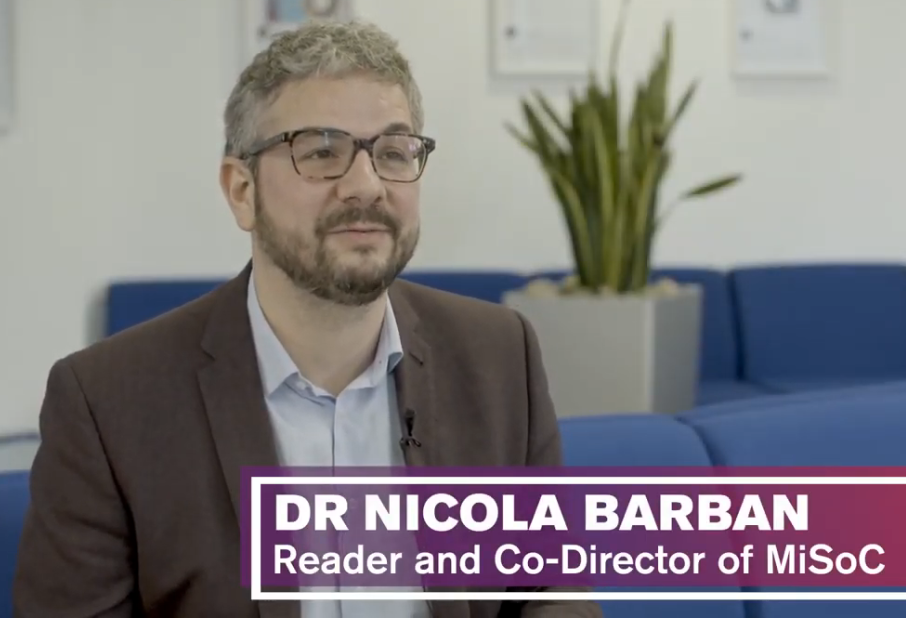We are delighted to announce that Dr Nicola Barban, Reader at ISER at the University of Essex and Co-Director of our ESRC Research Centre on Micro-Social Change (MiSoC) has been awarded two million Euros for a ground-breaking new study of population change.
Dr Nicola Barban said: “I am very excited about this project as it combines different research fields in a unique scientific framework. I will study how family networks evolve over the long term, by combining Big Data from internet-based genealogies, historical micro-census data and genetic information. Existing research focuses on recent factors to explain contemporaneous population trends, missing the long-view of demographic changes. In particular I will look at the evolution of three interrelated channels: multigenerational transmission, assortative mating and migration, and how they shaped fertility and mortality in Europe and United States from approximately 1800 until now. I believe this transdisciplinary project will overturn established links and deliver major breakthroughs in our understanding of demographic change.
“This is the first comprehensive study that combines historical and contemporaneous data to understand how population processes evolve via three interrelated channels: (1) multigenerational transmission, (2) assortative mating and (3) migration.
“Existing research focuses on recent factors to explain contemporaneous population trends, missing the long-view of demographic changes. As population processes (fertility and mortality) evolve slowly across generations, we urgently need to adopt a long-term perspective to comprehend demographic phenomena and design effective policies. I address this need by using newly available data on internet-based genealogies, micro-census data and genetics, to investigate long-term population processes in family networks.
“Building on my previous research on demography and genetics, I first develop a new theoretical model of transmission of differential fertility and mortality in family networks. Second, I examine diversity between and within families and its persistence across generations. Third, I use innovative Big Data from genealogy social networks and micro-census data to understand the long-term effect of migration on multiple generations. Fourth, I describe the long-term patterns of assortative mating, combining data from genetics and genealogy.
“This project will infuse new data linkages and produce methodological development in the use of Big Data in demography and beyond. The project will focus on the historical period from approximately 1800 until now in Europe and United States, a period of dramatic demographic and epidemiological changes that radically transformed our societies.
“This transdisciplinary project will overturn established links and deliver major breakthroughs in our understanding of demographic change. This project is not only ground breaking by setting a new research agenda, but due to the inclusion of genealogy data and their linkage with micro-census data, will yield major innovations in social sciences.”
Professor Anthony Forster, Vice Chancellor at the University of Essex, said: “I am delighted this ambitious international research project has received substantial support from the European Research Council. This is exactly the kind of research the University of Essex has a reputation for leading, using new approaches and linking data sources to deliver authoritative new insights into the way societies change over time.”
Dr Barban’s award is one of the 50 awarded to UK projects by the European Research Council announced today. The winners of this latest Consolidator Grant competition are 301 top scientists and scholars across Europe. Funding for these researchers, part of the Horizon 2020 research and innovation programme, is worth in total €600 million. With this support, the new grantees will have a chance to build up their teams and have far-reaching impact.
Mariya Gabriel, European Commissioner for Innovation, Research, Culture, Education and Youth, said: “Knowledge developed in these new projects will allow us to understand the challenges we face at a more fundamental level, and may provide us with breakthroughs and innovations that we haven’t even imagined. The EU’s investment in frontier research is an investment in our future, which is why it is so important that we reach an agreement on an ambitious Horizon Europe budget for the next multiannual budget. More available research funding would also allow us to create more opportunities everywhere in the EU – excellence should not be a question of geography.”
ERC President Professor Jean-Pierre Bourguignon, whose mandate ends on 31 December after six years in office, commented: “I have had the immense privilege of seeing thousands of bright minds across our continent receive the trust and backing to go after their most daring ideas. It has been an exhilarating experience through countless meetings with many of them in person, listening to their stories and being inspired by them. As it’s about top frontier research, it comes as no surprise that an overwhelming number of them already made breakthroughs that will continue to contribute greatly to meeting the challenges ahead. As I bid farewell to an organisation that will always remain close to my heart, I am once more highly impressed when I see this latest set of grantees funded by the European Research Council. That the ERC empowers them makes me proud to be European!”
Dr Nicola Barban explains his new research project in this short film
